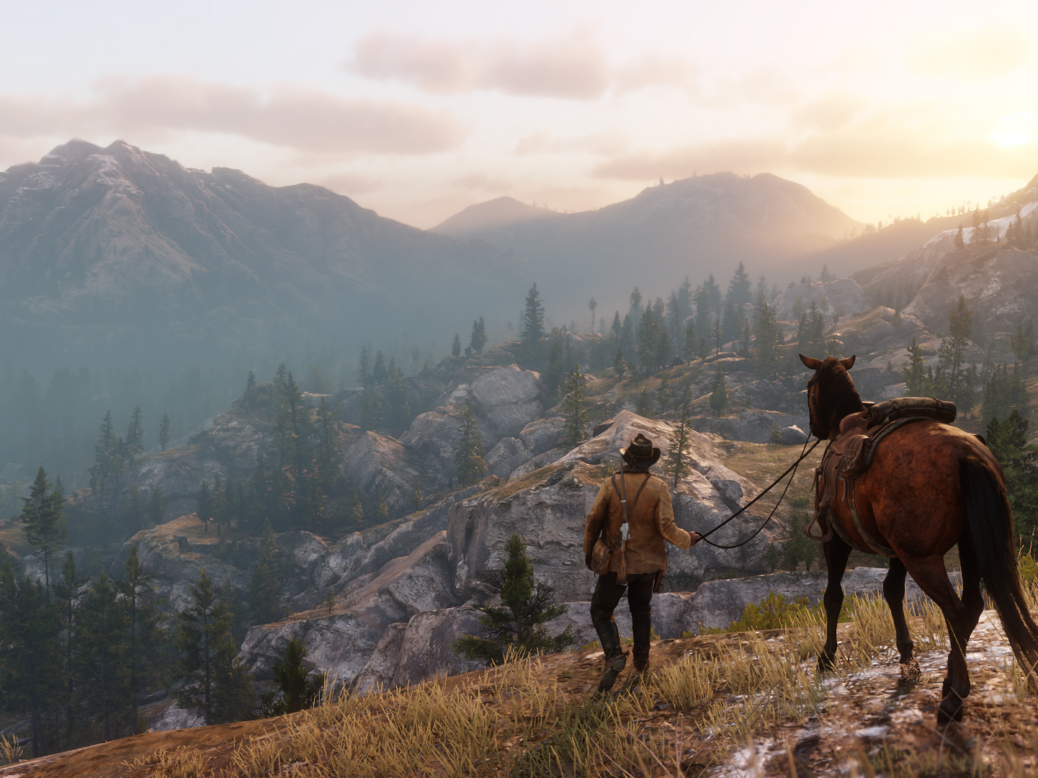
Ethical shopping usually brings to mind boycotts of sweatshop-manufactured clothing or visions of exploited children in overseas factories. Until recently, no-one was talking about the ethics or human cost of buying a videogame.
Until now, courtesy of media coverage stemming from an interview with Rockstar Games’ Dan Houser with the New York Magazine, in which he describes working 100-hour weeks. Chaos broke out, in part because of the lack of challenge by the journalist to this seemingly throwaway comment, and in part because Houser then tried to claim that he was talking only about the writing staff, and only for a period of a few weeks.
Anyone who has worked for or with videogames knows that what Hauser describes – crunch time – is not the exception, it’s the norm. It’s even become somewhat of a machismo boasting culture. The cult of overwork has become standard in some industries. An advert for chores app Fiverr boasts, “You eat coffee for lunch… Sleep deprivation is your drug of choice”, while another for an Apple TV show (since deleted) reads “I rarely get to see my kids. That’s a risk you have to take”.
Silicon Valley is the most famous culprit but games companies have been doing it forever. Overwork is so common, it becomes normal, and dissent is difficult. Those wishing to merely work their contracted hours are seen as poor team players, and in industries where competition for jobs is fierce, employees can feel like they simply have no choice. When Kotaku wrote a follow-up piece about Rockstar, contributors asked to be anonymous for fear of reprisals. The message is clear: put up with it, and don’t talk about it.
I know what it’s like, because I’ve been there, and so I also know that crunch time can have significant, serious and lasting health implications. For a start, sleep deprivation can wreck you. In my case, I worked so many hours with so little sleep, I lost the vision in one eye and started to experience mania. While these were short-term symptoms, they were still dangerous, and served as a warning that my brain and body was in serious sleep deficit. Some studies show that being sleep deprived carries the same risks as being heavily drunk, and that’s before the problem of overworked employees actually drinking on the job to try and cope with the stress. Kotaku reports:
“Many of the most harrowing stories shared by current and former employees—anecdotes of damaged relationships, mental breakdowns, and heavy drinking at work—were impossible to print without risking that the individuals involved might be identified.”
Lack of sleep combined with alcohol raises blood pressure and causes anxiety. It can also mess up your metabolism. People who sleep less get fatter. Couple this with the pizza, booze and Red Bull culture and you have yourself a recipe for ill health.
There’s no good evidence that overwork can make you randomly drop dead, but it can certainly increase your risk factors for lots of bad things, including mental health problems. Anyone with an existing tendency towards psychosis, for example, is likely to suffer when overworked and under slept, and several studies show links between overwork, depression and anxiety.
But without investment and expansion from games companies, crunch culture isn’t going away. Indeed, as the demand and competition for increasingly complex games with longer and longer playtimes increases, the problem is only going to get worse. This is exactly what happened in a similar industry – animation – and the temptation for games developers worried about increasing workers rights and bad PR may simply be to shift production overseas and hope journalists and consumers don’t look too closely.
If employees are afraid to unionise or even just say “no, you need to hire more people, not abuse the staff who are already loyal to you”, then nothing will change. And perhaps if employees can’t say it, we the customers need to. Consumer pressure has successfully forced other industries into amending exploitative business practices. If developers know that consumers aren’t prepared to put up with unethical working conditions, they’ll do something about it.






